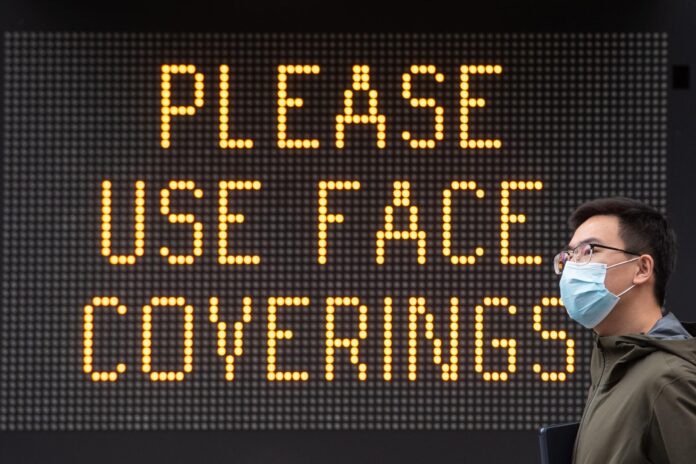The debate on whether mask wearing should continue after the 19th June has been prominent this morning with the Prime Minister expected to annunce this afternoon that the wearing of masks will not longer be mandatory.
Yesterday Greater Manchester’s Mayor Andy Burnham tweeted
I struggle to see how Ministers can drop the requirement to wear masks on public transport without causing real problems for some people who are dependent on it. “Those more vulnerable to infection or anxious about it will be put in a very unfair position. Rethink needed?”
Steve Rotheram, the metro mayor of the Liverpool City Region, added: “I understand people not wanting to wear masks but it’s a minor inconvenience that we know helps to slow the spread of the Coronavirus – and gives people a level of reassurance, especially the vulnerable.
“You wouldn’t want your surgeon to take their mask off would you?”
This morning the Unite Union said that mask wearing should remain compulsory on public transport
Unite national officer for passenger transport Bobby Morton said: “To end the requirement to wear masks on public transport would be an act of gross negligence by the government.
“Rates of infection are continuing to increase and not only does mask wearing reduce transmissions it helps provide reassurance to drivers and to passengers who are nervous about using public transport.
“The idea of personal responsibility and hoping that people will wear masks is absolutely ridiculous, members are already reporting there is an increase in passengers ignoring the rules on mask wearing.
“Until rates of Covid-19 are fully under control, throughout the whole of the UK, the rules on mask wearing on public transport should remain in place.”
On Sky News this morning Calum Semple, a professor of child health and outbreak medicine at the University of Liverpool and a member of the Scientific Advisory Group for Emergencies (SAGE),said that he may continue to wear one.
“I probably will in some settings, but it’s got to be remembered that the mask-wearing is primarily to stop transmission rather than acquisition, so it’s people that have got symptoms, who should really be staying at home, that are going to be the risk here, rather than the people walking around who are double-vaccinated. They’re far less at risk.”
The link between severe disease and hospital admission is “being broken from the cases in the community”, he added.
“There’s proportionally far more people in hospital now under the age of 50, who mostly haven’t been vaccinated, that are suffering moderate disease.”







